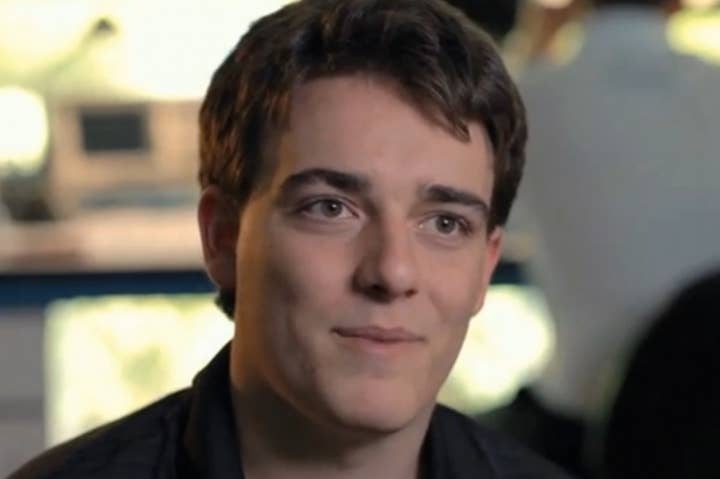Oculus: VR "one of the most important technologies in the history of mankind”
Palmer Luckey on the huge impact VR will have and the challenges that remain
In his first ever DICE Summit presentation, Oculus VR founder Palmer Luckey talked about the fast pace at which VR technology has been accelerating and how he believes it will radically change entertainment in the near future. His belief in virtual reality is so strong that he ended his talk saying that "VR is going to be one of the most important technologies in the history of mankind." Unlike other technologies, he thinks that VR has been in the popular consciousness for a long time now, so it's a lot less hard of a sell to the mainstream.
And Luckey does indeed see VR going mainstream. While many games are complicated for older generations to play (an FPS, for example, takes a lot of skills) everyone inherently knows how to look around and explore an environment. So Luckey believes that VR will be able to open up gaming to a far wider audience than ever before. And it will be games that lead the VR charge, because more than any other medium games are driven by the advancement of technology. He noted that games are "reaching a point of diminishing returns," and while we have better graphics, better gameplay, and better hardware than in the past, none of these things are fundamentally changing games and the way we play. "VR is the first tech in a long time that makes games feel different. VR opens the door for limitless innovation," Luckey said.
The games industry will likely push VR technology forward, but the impact will be felt across entertainment and many other industries, Luckey believes. "The people who work on VR today will define not just the games industry but the entire entertainment industry," he said. Additionally, people in movies, architecture, simulation training and other fields will learn from what the games business does with VR. In fact, Luckey said that digital communications could be revolutionized by VR. "There's a reason people still meet face to face. There's something you can get from real life interaction that you can't yet get from virtual interaction... But VR will allow for a lot of these things and make you feel like you're in the same place even if you're not," he said.
Some of the biggest challenges to VR technology today include VR Game Design, Spacial Audio, VR Input, Haptics, Face Tracking, and Vection. Of these, VR Input could be the biggest challenge, Luckey noted. We don't yet have a good input tech to reach out into the virtual world and interact with it. And Haptics are going to need to improve, to allow for actual differences in feeling and texture, rather than just vibration.
Looking more specifically at the VR experiences developers are creating now, Luckey said the biggest thing to wrestle with is a sense of presence. Presence is what fools your mind into really thinking you're someplace you're not. "If you think about the first time that Neo jumped off a building in the Matrix, it was difficult because on a subconscious level his brain told him it was dangerous," Luckey said as an example. Luckey sees this sense of presence getting better and better with VR so that flying, falling and other actions feel real. VR will make the connection between the player and the environment stronger than ever, he said.
Moving forward with the technology, there's lots of work to be done. "The Oculus Rift dev kit is pretty primitive compared to where it needs to go," Luckey admitted. He said VR is moving incredibly fast now compared to the decades of stagnation that it's seen. And he believes that it's inevitable with so many people building VR tech that there will be huge breakthroughs. "It's not too long (within the next 5-10 years) that we're going to have screen technology that goes beyond the resolution of the human eye," he said. And those bulky Rift goggles? Forget 'em. Eventually we'll get away from the heavy goggles to make something that's as small as the glasses a person might wear for corrective lenses. Furthermore, Luckey said that mobile chipsets will be integrated into the headsets themselves, and "when that happens VR will become ubiquitous and affordable," he noted.
While the hardware will get better, VR will ultimately be defined by the content creators. One barrier they have is latency - which Luckey said exists in the software but not as much in the hardware. The game really needs to match how you move your head to what's on screen to have as little latency as possible. High frame rates are also hugely important to maintaining a sense of presence. It's all very early still, and Luckey said what we've all seen so far is merely the "tip of the iceberg."







.jpg?width=291&height=164&fit=crop&quality=80&format=jpg&auto=webp)

